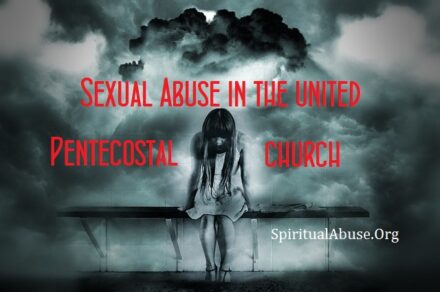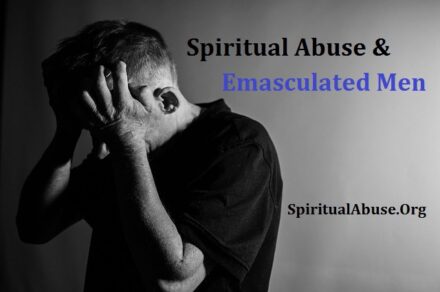This is part seventeen in a series of articles. You may want to first read this article as it covers the very basics of this case. (Some statements in this article are what have been alleged by people with whom I have been in contact, who are well acquainted with this situation.) I apologize for the length of this article but it cannot be properly covered with a few paragraphs.
Since the initial article on this case, I have been able to obtain one of Jason Hubacek’s November 1, 2017 indictments (I believe the three are the same except with respect to the date the assaults occurred and who was assaulted.), as well as the Probable Cause Affidavit made by Detective John Hudson, who investigated the case. Should you wish to view them, please be forewarned that they are disturbing and may be triggering, especially the Probable Cause Affidavit. Image links for Indictment, Probable Cause 1, Probable Cause 2
In the first article, the pastor’s letter to the members of Abundant Life Sanctuary (an affiliated United Pentecostal Church in Groves, Texas) about Jason Charles Hubacek was shared. Included with this letter were the church policies and procedures regarding children that were adopted in mid December 2011. The church gave itself 90 days to implement them and 120 days to complete the initial screening process and background checks. Essentially, it didn’t go into full effect until sometime in 2012. It has been alleged that, “many of the church members are NOT happy about the letter the Myers gave to them” and “wonder why Hubacek was given so much access when they knew what he was accused of.”
If you will recall from the first article, Jason was very active at Abundant Life Sanctuary for years prior to the start of these policies, yet after they were aware of serious allegations against him by his first wife. David and Jason Myer, pastors of the church, as well as Sandra Myer, were aware of accusations of child sexual abuse against Jason since around 2007-2008. [May 29, 2024 Edit: David Myer passed away on September 10, 2020.] Because of this, it is no wonder if there are indeed members who are questioning their allowing Hubacek to work so closely with children.
Child protection guidelines are needed in ALL churches. I personally know that at my former United Pentecostal Church in NJ, background checks were never done on the adults who worked with the church children. (I was there from 1981 through 1993.) You trusted people simply because they were members of the church, were water baptized, spoke in tongues and appeared to follow the holiness standards. I worked with children there in different capacities over the years and never once was a background check done, nor was I ever instructed on what to do if I suspected any form of child abuse. One person has shared with me that they sometimes worked with the children at Abundant Life Sanctuary and was never given instructions for handling child abuse cases, nor were they asked by the church to sign a release for a criminal background check (as will be seen in the church papers). She recalls teaching children’s church on a Wednesday night with another person and she believes that happened close to the same time she made the decision to stop attending. This would have been during the first quarter of 2012. Another person who left Abundant Life Sanctuary four years later recalled a few of the staff went to the Garth House for training one time in either late 2011 or early 2012. After that they don’t recall having additional training.
Child Abuse is a particularly sensitive area. Of course, the church should do its utmost to protect children. Failing to protect children can cause lasting harm to them as well as adverse publicity and great legal liability. Generally, ministers don’t have a right to privileged communications when child abuse is involved. Many states require ministers, teachers, counselors, or the general public to report cases of suspected or confessed child abuse. There can be both criminal and civil liability for failure to do so. Of course, there is an even greater ethical obligation to prevent ongoing and future harm, which generally means the abuser must be held accountable by proper authorities. Church leaders should know the law of their state, including what to report and to whom they should report. – David Bernard, Spiritual Leadership in the Twenty-first Century
Guidelines and procedure policies are only good insofar as they are adhered to. David Bernard, General Superintendent of the United Pentecostal Church, wrote in his book Spiritual Leadership in the Twenty-first Century, “When a church adopts a policy it must make sure to follow that policy. If it doesn’t, it will be judged for failing to do what it knew was right.” There are aspects of this church’s policy that I find problematic. Let’s briefly look at the law in Texas regarding reporting child abuse.
Requirements to report child abuse in Texas is not limited to teachers or health care professionals as may be found in some places. Everyone in Texas is required to report, even individuals whose personal communications would be considered privileged. Sec. 261.101 (a) states, “A person having cause to believe that a child’s physical or mental health or welfare has been adversely affected by abuse or neglect by any person shall immediately make a report as provided by this subchapter.” Immediately reporting, to me, does not mean one runs around attempting to first contact a senior pastor or then a pastor as this church demands. Certain professionals are permitted up to 48 hours to report and they “may not delegate to or rely on another person to make the report.” This “includes teachers, nurses, doctors, day-care employees, employees of a clinic or health care facility that provides reproductive services, juvenile probation officers, and juvenile detention or correctional officers.”
Texas law further stipulates where one is to make the report. Sec. 261.103 states in part that these are to be reported to “(1) any local or state law enforcement agency; (2) the department; [NOTE: Department means the Department of Family and Protective Services.] or (3) the state agency that operates, licenses, certifies, or registers the facility in which the alleged abuse or neglect occurred.” It is important to note that it says nothing about reporting to the pastor, contrary to what the church guidelines state, though there may be times where that would be needful after it was first reported to the proper authorities.
Church leadership does not have the authority to supersede these laws, nor should they instruct people to do otherwise. Unfortunately, in the same book noted above, David Bernard shares, “Church policy should instruct workers to report problems to their superior, who will in turn ensure the fulfillment of legal and ethical obligations.” I believe this is a mistake as there have been a number of cases through the years where people have gone to a UPCI pastor/minister and it has not been reported to the authorities. If you leave it to a minister to report, you may never know if the case was reported, that is unless you later follow up on it yourself. I would strongly advise anyone to first report it themselves to the proper authorities stipulated in the law and then, should you feel the need to do so, report it to a church.
The church David Bernard used to pastor before he became the General Superintendent was in Austin, Texas. Similar instructions as that of Abundant Life Sanctuary are found in their 2009 edition of their church manual (page 30): “If a staff member obtains information regarding suspected, alleged, or confessed child abuse, he or she shall immediately notify the pastor, who is to ascertain and fulfill all legal requirements. Church attendees and workers shall likewise report to the pastor any case of suspected child abuse or other suspicious behavior. This includes psychological or physical symptoms of abuse that may have occurred elsewhere. In all cases, the matter shall be kept in confidence pending an analysis of the situation and appropriate action. Any statements to the church, the public, or the media must be coordinated through the pastor.”
On page 44 under Sunday School it also states, “Children’s workers shall report to the pastor any case of suspected child abuse, sexual misconduct, or other suspicious behavior. This includes psychological or physical symptoms of abuse that may have occurred elsewhere. In all cases, the matter shall be kept in confidence pending an analysis of the situation and appropriate action. As a matter of policy, the church (a) will fulfill all legal requirements in this area and (b) will not allow those who have sexually abused minors to work in any position involving supervision of or ministry to children or youth.” On pages 102-103 you will find the application form they use for those who wish to work with children.
Sec. 261.109 gives the penalties for failure to report, which is a Class A Misdemeanor, punishable by imprisonment of up to one year and/or a fine of up to $4,000. Class A is the most serious of the three misdemeanor charges. Texas law quite broadly defines child abuse and neglect, so if there is any possible indication that this is happening to a child, you need to report it.
One aspect of the law in Texas is that reporting the incident to your supervisor or manager is insufficient if you are a professional. You will see where the guidelines of Abundant Life Sanctuary instruct their employees and volunteers to report child abuse to the senior pastor, or in his absence, the pastor. Reporting to authorities is solely left in the hands of the pastor. With such policies, what happens if a pastor disbelieves a report or doesn’t want negative church publicity? What if it involves one of their family members, will they be inclined to turn them in or will they attempt to handle it ‘in house?’ What happens when it is someone who gives large amounts of money to the church or plays an integral role in helping?
This church also states in its policy that, “All inquiries or requests for information from the media, attorneys or any other parties shall be referred to the official spokesperson [NOTE: senior pastor]. No person other than the official spokesperson is to release any information regarding any alleged incident of child abuse without the express approval of the official spokesperson.” In other words, the church goes on lock down and everything involving an accusation or incident is left in the hands of the senior pastor.
Sec. 261.106 (a) stipulates that, “A person acting in good faith who reports or assists in the investigation of a report of alleged child abuse or neglect or who testifies or otherwise participates in a judicial proceeding arising from a report, petition, or investigation of alleged child abuse or neglect is immune from civil or criminal liability that might otherwise be incurred or imposed.” If you are a member of any church in Texas that attempts to silence you regarding helping authorities in their investigation of child abuse, please understand that you are protected under the law. You should be cooperating with any investigation. No church or pastor should attempt to silence you. A subpoena shouldn’t need to be issued in order for you to cooperate. If you know something that might help, go to the authorities and do not be concerned with what any pastor might say or demand.
For those interested, this is an official PDF document from the Texas Department of Family and Protective Services that covers the basics of how it works when you report a case of suspected child abuse. It would be good for all those in Texas to read.
Portions of the church guidelines are between the asterisks below, with images of the complete documents included in links afterward. There will be additional articles about this case as there are many concerns and questions and much more to cover. It should be noted that a minister, not pastor Johnathan Green, at The Anchor of Beaumont was the one who reported Jason Hubacek to Child Protective Services and it was not someone from Abundant Life Sanctuary. Here are some questions regarding Abundant Life Sanctuary and their procedures:
- Has the church completely, and without failing on any point, followed their guidelines starting in 2012?
- Were any guidelines in place prior to 2012 and were they faithfully followed?
- At the beginning of every year, do all employees and volunteers working with minor children really receive training? (It is alleged this didn’t happen in the first quarter of 2012 and may have only happened once between 2012 and 2016.)
- Does the church have on file any documented reports where the senior pastor reported suspected child abuse to the proper authorities?
- Has the Texas District Superintendent received any reports from David Myer since 2012? (That would have been Danny Russo in 2011-2012 and Kevin Prince from 2013 through 2018.)
- What about the allegations that numerous people did go to the pastors after 2007 with concerns about Jason Hubacek?
- It is clearly stated in the guidelines that, “those who have a history of inappropriate conduct with children will not be employed and shall not volunteer service in any church-sponsored activity or program for minors.” Why then was Hubacek allowed to do so as this part of the guidelines is not speaking of criminal convictions?
- If an adult is not to be alone with children, how did anyone allegedly witness Jason Hubacek alone with a child on several occasions from mid 2010 to early 2012?
- Who is ultimately responsible for insuring these guidelines are adhered to and strictly followed? It has been alleged that the only members on the Pastoral Committee (mentioned in the church documents) are the members of the pastoral family. So if indeed these guidelines have not been followed, the total and complete responsibility would fall on David and Jason Myer and their family members, who may or may not comprise this committee.
The church must treat all allegations seriously and not dismiss them out of hand. The church should also show compassion and offer assistance to victims and their families, perhaps arranging for professional counseling. The worst thing it can do is to ignore, blame, or attack the victim. – David Bernard, Spiritual Leadership in the Twenty-first Century
***********
Child Protection Guidelines
adopted by
Abundant Life Sanctuary, Inc.
December 13, 2011
1. All adults and youth, both employed and volunteer, who work with minors must be screened and undergo a criminal background check prior to beginning work. All persons who work with minors must undergo a Screening Process. The steps and checklist to be used in the Screening Process are labeled “Appendix A”.
2. Adults who have been convicted of either sexual or physical abuse of children/youth or those who have a history of inappropriate conduct with children will not be employed and shall not volunteer service in any church-sponsored activity or program for minors.
3. Adult survivors of childhood sexual abuse need and will receive the love and acceptance of our church family.
4. Employees and volunteers who work with children and youth shall observe the “two-person rule” or the “window in door policy”at ALL times. The “two-person rule” requires that employees, volunteers, and supervisors shall make every reasonable effort to avoid situations where an employed or volunteer worker is alone with children or youth without a partner. The “window in door policy” requires a window in the door of all rooms where there are children and youth.
5. All employees and volunteers working with children and youth are required to be members or active constituents of Abundant Life Sanctuary, Inc. for a minimum of six months before they begin their work or to have transferred their membership from another United Pentecostal Church with that pastor’s recommendations.
6. Our guidelines and procedures for reporting suspected incidents of abuse, or any behavior, which seems abusive or inappropriate are labeled “Appendix B”. Our guidelines and procedures for responding to reported incidents of abuse are labeled “Appendix C”.
IMPLEMENTATION:
These guidelines and procedures will be implemented within ninety (90) days of their adoption, with the completion of the initial screening process and background checks within one hundred twenty (120) days of adoption.
The Pastoral Committee will have the responsibility to implement and enforce these guidelines and procedures, including the training of employees and volunteers, maintaining confidential records, and implementing the screening process.
(NOTE: This is followed by Appendix A, which is a checklist of steps to be completed before a person is permitted to work with the children.)
Appendix B
Abundant Life Sanctuary, Inc.
Child Protection Guidelines
Reporting Procedures
The law requires a person to immediately report suspected and reported child abuse to the authorities and, in organizations such as Abundant Life Sanctuary, Inc., to the appropriate individual in charge. A person who fails to do so can be prosecuted for a Class B misdemeanor or, in extreme circumstances, may be subject to civil liability for money damages. Therefore, all employees and volunteers at Abundant Life Sanctuary, Inc. must adhere to the following procedures:
1. In the event of suspected, reported, or discovered child abuse or violation of the Child Protection Guidelines of Abundant Life Sanctuary Inc., the employee or volunteer shall immediately notify the Senior Pastor or, in the absence of the senior pastor, the pastor. In the event of suspected, reported or discovered child abuse or neglect, the senior pastor or pastor will also immediately make a report to the local child protection service or law enforcement agency (Groves Police- 409.962.0244).
(Note: They then give some potential physical and behavioral signs of molestation.)
2. Reports shall be documented in writing with the date of the report, the time of the report, the telephone number to which the report was made, the name of the recipient of the report, and a brief synopsis of the report. If at all possible, all oral reporting will be done in the presence of a recorded witness.
3. All church employees and volunteers working with minor children will receive training at the beginning of each church administrative year regarding the signs of child abuse, including child sexual abuse, and the steps to report any and all suspected child abuse.
*Adapted from Child Abuse: Governing Law and Legislation by I. Sloan (1983)
Appendix C
Abundant Life Sanctuary
Child Protection Guidelines
Response Procedures
1. The official spokesperson for Abundant Life Sanctuary, Inc. shall be the senior pastor, or in the absence of the senior pastor, the pastor. All inquiries or requests for information from the media, attorneys or any other parties shall be referred to the official spokesperson. No person other than the official spokesperson is to release any information regarding any alleged incident of child abuse without the express approval of the official spokesperson.
2. The official spokesperson shall immediately report any alleged incident of child abuse to the appropriate local Child Protection Services agency of the county or law enforcement authorities, our insurance carrier, and the District Superintendent.
3. The care and safety of the victim is our first priority. We will not confront the accused without the approval of Child Protection Services or law enforcement authorities.
4. We will not prejudge any person accused, but we will take any allegation of child abuse seriously and will reach out in Christian love and support to the victim and the victims family, extending whatever pastoral care resources are needed. We will fully cooperate with any authorities investigating an allegation of child abuse.
5. We will treat the accused with dignity and respect. If the accused is a church worker, that person shall be temporarily relieved of his or her duties until the investigation is finished and the person cleared by the authorities. If the accused is a paid employee of our church, his or her income will be maintained, until allegations are cleared by authorities or until criminal charges are filed.
6. All communication by the official spokesperson to the media, congregation, and public will protect the privacy and confidentiality of all involved.
Image link for page 1, page 2, page 3, page 4, page 5
You will find a complete list of articles in this series by clicking here.
********
Shop at our Amazon store! As an Amazon Influencer, this website earns from qualifying purchases.





